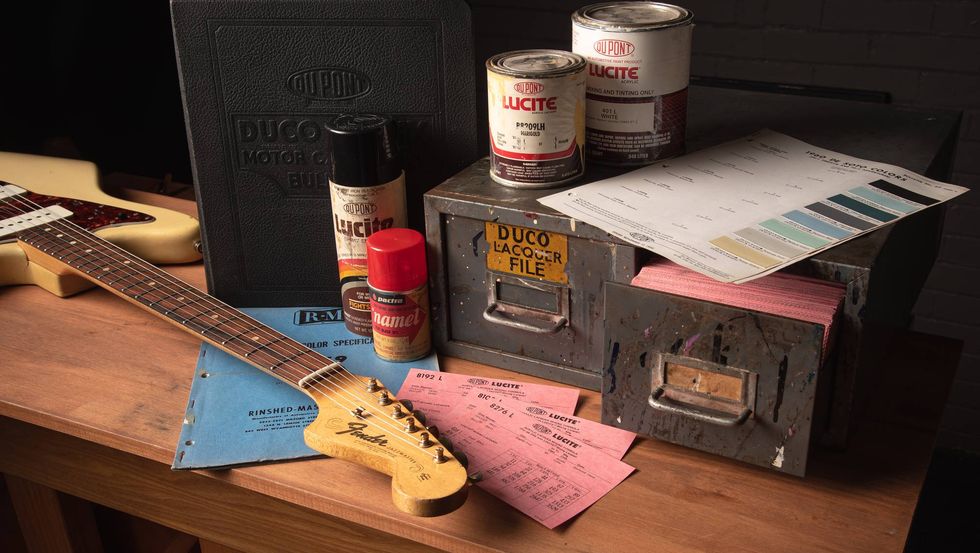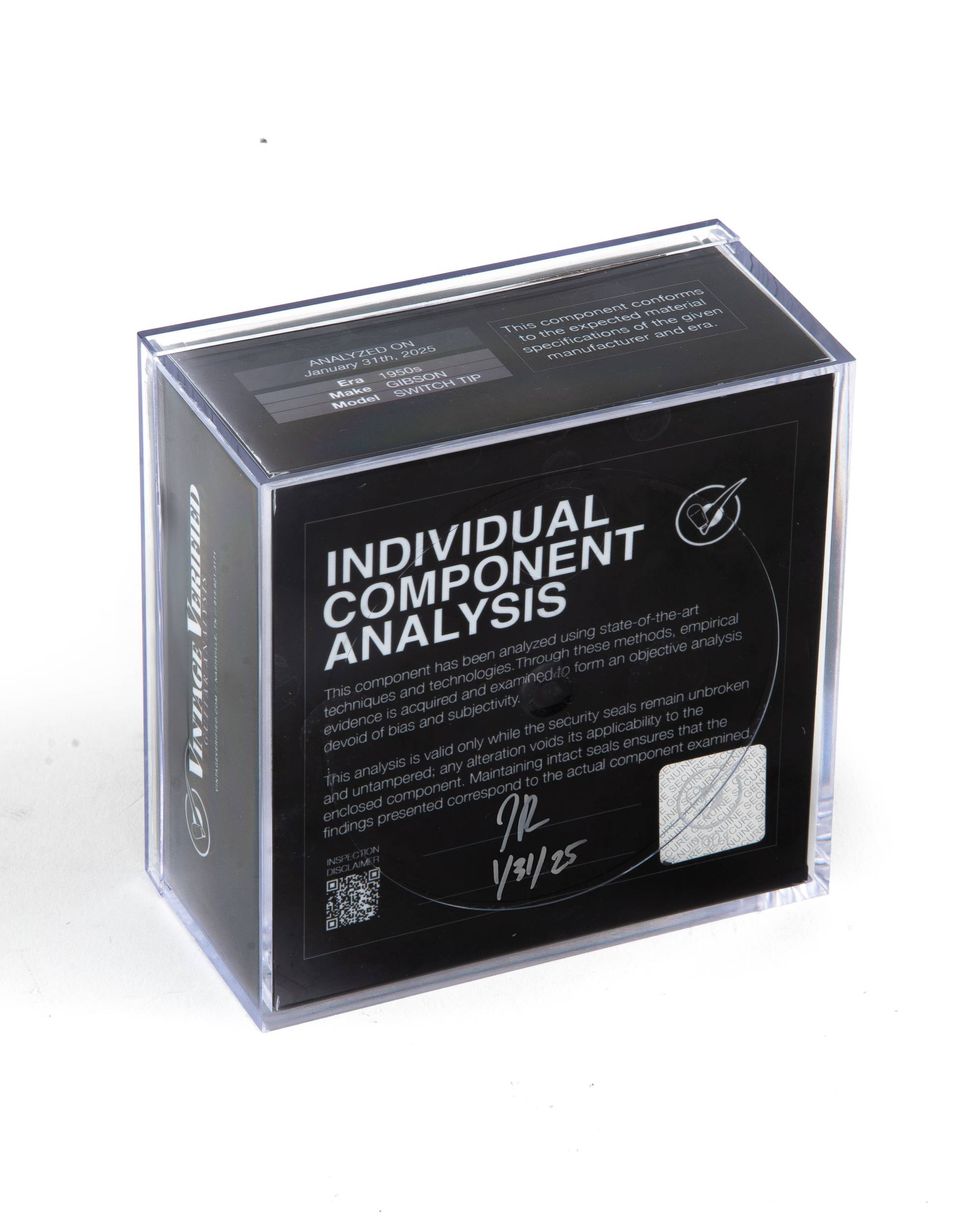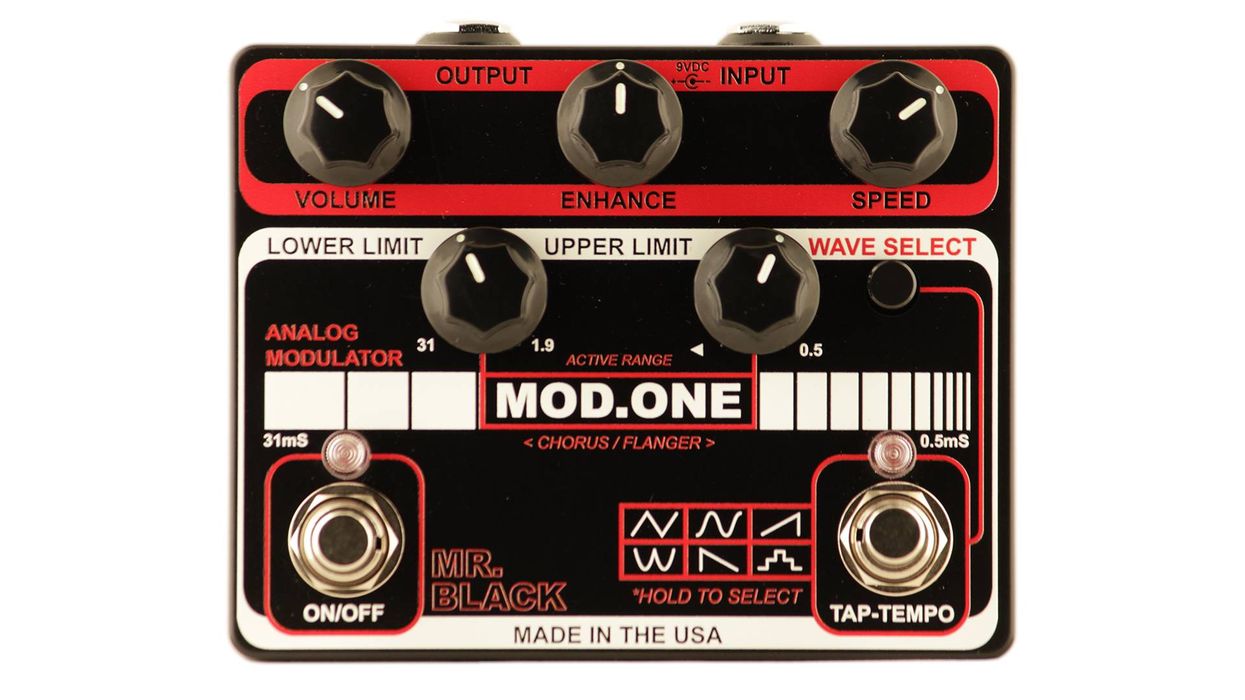You’re about to read a rave review of an innovative and inspiring pedal. Red Panda’s Particle 2 is practically guaranteed to take your tones to new places. But before proceeding, be aware that those destinations aren’t for everybody.
No Pain, No Grain
The Particle 2 is a granular delay. (Skip ahead if you already know what that means.) The concepts behind granular delay/synthesis originated in the 1960s. The process has been available in music software for some 20 years via such programs as Native Instruments’ Reaktor and Cycling 74’s Max/MSP. But it’s only existed in stompbox form for a few years.
Granular delays divide incoming audio into tiny slices—or particles, if you like. These slices are then subjected, independent of each other, to digital manipulation including time and pitch shifting, delay, reverse playback, phase manipulation, and more. Additionally, any of those parameters can be modulated, producing violent storms of sound. This is not a pedal for the ol’ Tuesday night blues jam.
Colors of Chaos
The Particle 2 improves your odds of getting musically coherent results from granular delay’s anarchic process. The crucial control is the 8-position mode switch. The role of the adjacent parameter control varies from mode to mode. The first mode, density, is the simplest, and probably the most utilitarian if you want unusual tones that still conform to standard chords and rhythms. Layered behind your dry signal, its shimmering, blurry textures can be downright beautiful, like a pretty landscape viewed through a window on a rainy day.
LFO mode expands and contracts the speed of the delayed signal. Reverse mode randomly reverses some slices. Pitch mode randomly detunes echoes, while random mode scrambles the delay times. The pitch modes manipulate tuning, LFO modulation, and grain density.
The intricacies of these effects are best understood by listening. You hear the various modes in the demo clip. It’s a long clip because there’s much to explore here—and because playing Particle 2 is fun.
The Particle 2 improves your odds of getting musically coherent results from granular delay’s anarchic process.
Digital Dexterity
The remaining controls set the intensity of various parameters. There’s an all-important wet/dry control. The chop control sets the grain size. Its results range from near-conventional echoes to thick harmonic soup. The delay time and feedback controls do what you’d expect. Together, these knobs regulate the intensity of the Particle 2’s effects, permitting relatively subtle sounds that make this pedal more than a frantic noise bomb.
In all modes, the Particle 2’s sound quality is stellar for its price range. There’s none of that low-resolution bleating you often encounter in stompbox pitch shifters. The pedal runs on standard 9V power supplies. (Adapter not included.) You can’t use a battery.
The Particle 2 can store four settings in memory with a single button-push, or access 127 saved sounds via external MIDI program change commands. You can pilot any one knob with a foot controller. (The parameter knob is an obvious choice.) There’s also a tap-tempo switch that doubles as a freeze control when held.
The Verdict
It’s no surprise that the Particle 2 can generate violent, chaotic sounds—it’s a granular delay! It’s more remarkable for its ability to wrangle this unruly family of effects into more subdued and musical contexts. It’s easy to imagine some of these sounds finding a home in a relatively straightforward pop track. The Particle 2 is well made. Its sound quality is excellent. The interface is lucid. It has a vast repertoire of head-spinning tones. The R&D this design surely required more than justifies the $299 price. The Particle 2 is ingenious, inspiring, and endlessly fun.




















![Rig Rundown: Russian Circles’ Mike Sullivan [2025]](https://www.premierguitar.com/media-library/youtube.jpg?id=62303631&width=1245&height=700&quality=70&coordinates=0%2C0%2C0%2C0)






